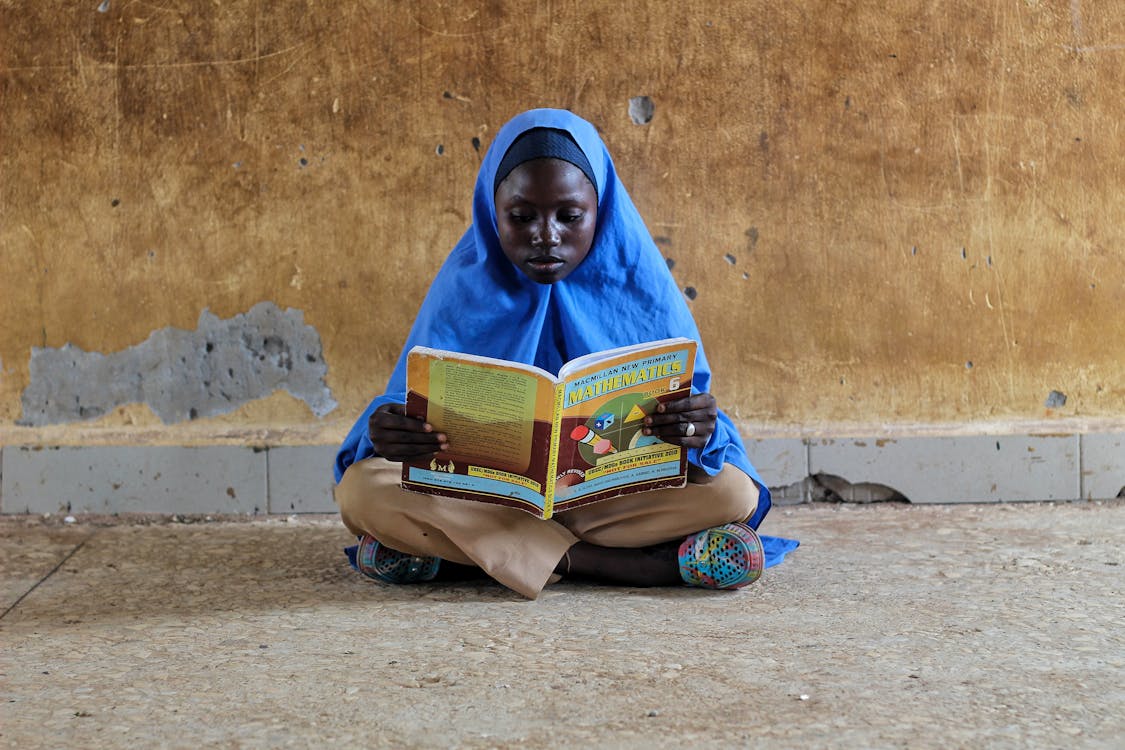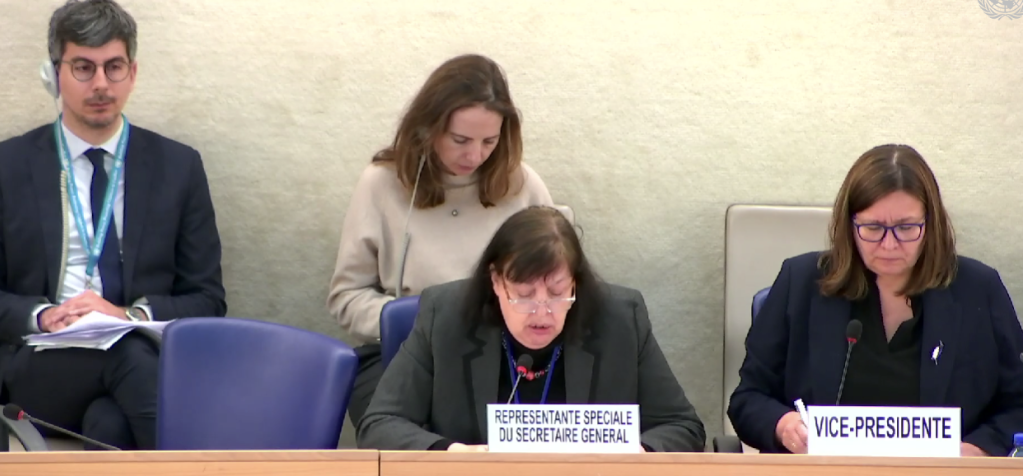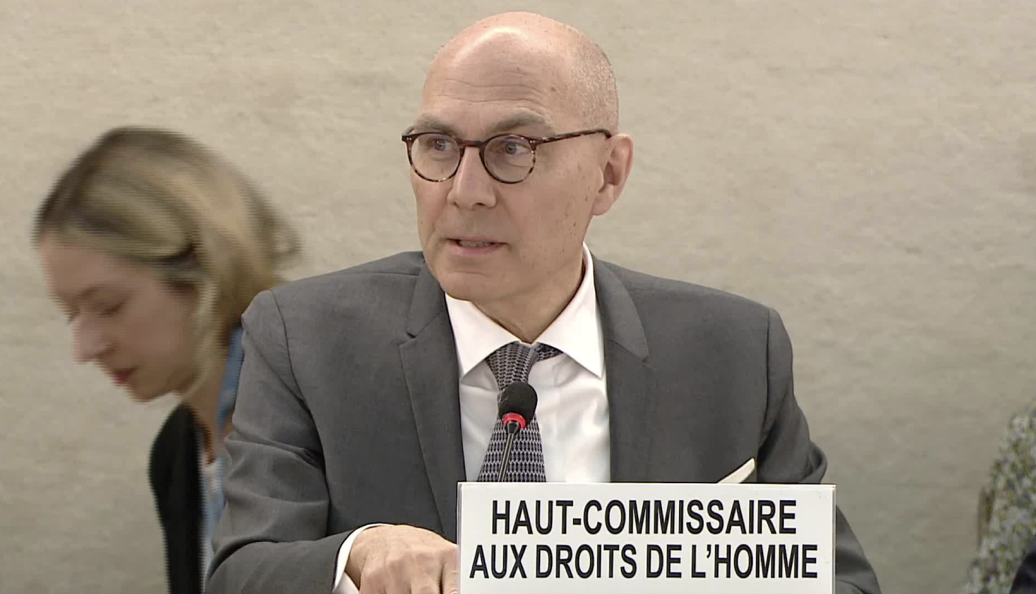By Shyla Gheek / GICJ
“There is no trust more sacred than the one the world holds with children. There is no duty more important than ensuring that their rights are respected, that their welfare is protected, that their lives are free from fear and want and that they can grow up in peace.”
- Kofi Annan
Every day, countless children lose their innocence, the joy of childhood, their sense of belonging, and their freedom, as they face the darkness of abuse, exploitation, and violence. Their laughter, once carefree, fades into silence, and the spaces they should feel safe in become shadows of fear, particularly in regions of conflict. In November 2022, the General Assembly of the United Nations adopted resolution A/RES/77/8, proclaiming the 18th of November of each year as the World Day for the Prevention of and Healing from Child Sexual Exploitation, Abuse and Violence. The purpose of the World Day is to increase awareness and bring global visibility to the trauma of sexual abuse on children, in addition to prompting action by all states towards preventing such abuse and bringing healing to survivors.
In the 2030 United Nations Agenda for Sustainable Development, ensuring the dignity of children and their right to life and development has been emphasised. Reflected through various goals and targets aimed at ending exploitation, abuse, trafficking, torture, and all forms of violence against children. For instance, SDG 16.2 aims to end all forms of violence against children and foster peaceful, inclusive societies with justice accessible to all. Several other SDGs focus on addressing particular forms of harm to children around the world; such as the elimination of harmful practices like female genital mutation (target 5.3), child marriages instead of education (target 4), and ensuring healthy lives and well-being at all ages (target 3).
There are harsh statistics that underscore the urgency of taking strong, evidence-based actions to protect children from violence and exploitation:
- Globally, an estimated 120 million girls under 20 have been subjected to various forms of forced sexual contact.
- Although precise global statistics for boys are incomplete, studies conducted in 24 predominantly high- and middle-income countries reveal that between 8% and 31% of girls and 3% to 17% of boys, under 18, have experienced sexual violence.
- UNICEF reported that nearly 1 in 10 girls under the age of 20 have been forced to engage in sex or perform other sexual acts.
- Disturbingly, 1 in 20 men confessed to engaging in online sexualised behaviours directed at children under the age of 12.
The repercussions of sexual violence and exploitation expand further into physical, psychological and social trauma, and their tremours can be past on through generations.
- Victims face higher risks of HIV and other sexually transmitted infections, physical pain, illness, unwanted pregnancies, social isolation, and psychological trauma.
- In coping with their experiences, some may turn to risky behaviours, such as substance abuse.
- For children who endure this trauma, the effects can persist into adulthood, often diminishing their capacity to care for themselves and others.
- Alarmingly, 1 in 4 children under 5 live in a household where their mother has faced intimate partner violence.
- Adults who endured 4 or more Adverse Childhood Experiences, such as physical, sexual, or emotional abuse, are 7 times more likely to be involved in interpersonal violence—either as victims or perpetrators—and 30 times more likely to attempt suicide.
It is important to note that in situations of armed conflict, natural disasters, and other humanitarian crises, women and children face heightened risks of sexual violence—including violence related to conflict, intimate partner violence, and trafficking for sexual exploitation—as well as other forms of gender-based violence. Rape, killing, maiming, forced recruitment, and other form of sexual violence, are one of the ‘6 grave violations’ against children in areas of conflict that the UN monitors and reports on an ongoing basis. Conflict-related sexual violence is a serious violation of international humanitarian law, or the laws of war, and a war crime. During the 55th session of the Human Rights Council in 2024, led by Virginia Gamba, the Special Representative of the Secretary-General for Children and Armed Conflict, the severe gravity of ongoing hostilities on children’s lives was brought to light; especially distressing in war-affected nations such as Syria, Iraq, and Palestine.

Areas of Conflict
There are continued reports of sexual assault and violence against women and girls, including against those detained by Israeli occupation forces in the State of Palestine. The persistent occurrence of severe violence, by parties involved in the war includes attacks on schools and healthcare facilities, obstructed humanitarian access, and child recruitment for armed roles amid ongoing clashes, settler violence, and stabbings. Additionally, UN Women’s recent report from Gaza underlined that more than 540,000 women and girls of reproductive age lack access to items to support their hygiene, health, and dignity; placing an estimated 50,000 pregnant Palestinian women and 20,000 new-born babies at unimaginable risk.
Yemen urged the Houthis to comply with their commitments after signing the UN plan of action against the recruitment of children in 2022, suspected to be starting as young as 13. In addition to being sexually abused by employers, children living in rural areas in Yemen are vulnerable to forced labour practices in the agricultural sector. UNICEF recorded more than 8,526 violations between 2019 and 2020, including denial of humanitarian access, the killing maiming and recruitment in the conflict. 3,500 of these children had suffered more than one form of human rights violation.
During the 49th session of the Human Rights Council, Syria’s representative stated that to “achieve progress in promoting and protecting children's rights requires devotion to this cause and unifying efforts to address the root causes of children suffering objectively.” Contrary to the concerns expressed, it is estimated that 5.3 million children in Syria require humanitarian assistance and protection. As indicated in the June 2023 report by the UN Secretary General, 2,438 grave violations, that include but are not limited to sexual violence, against 2,407 children (2,059 boys, 312 girls, 36 sex unknown) occurred throughout 2022.
Accountability remains low for perpetrators in countries like Afghanistan, where half of their 30 million people are under 18. They are exposed to extreme situations of sexual violence and abuse due to ongoing fighting, displacement, a poor economy, and harmful social norms and practices. The increased number and frequency of conflict-related incidents have caused an alarming rise in child casualties. Moreover, Afghan girls face early marriage, honour killings, domestic abuse, and sexual violence. While Afghan boys suffer many of the same risks, along with military recruitment into armed conflict, and sexual exploitation.
Forced Child Marriages
Sexual violence and forced marriages constitute crimes against humanity when committed as part of a widespread or systematic attack on a civilian population, such as that occurring in Sudan. Widespread sexual violence in Khartoum and its sister cities of Bahri and Omdurman have subjected women and girls, from ages 9 through to at least 60, to sexual violence, such as rape. Women and girls have also been subjected to forced marriage and child marriage.
Iraq’s parliament is moving forward with an amendment to the country’s Personal Status Law that would allow Iraqi religious authorities, rather than state law, to govern marriage and inheritance matters at the expense of fundamental rights. If passed, the amendment would have disastrous effects on women’s and girls’ rights guaranteed under international law, as they are allowing marriage for girls as young as 9, undermining the principle of equality under Iraqi law, and removing protections for women regarding divorce and inheritance. Child marriage puts girls at increased risk of sexual and physical violence, adverse physical and mental health consequences, and being denied access to education and employment.
In Pakistan, it’s been reported that an average of 12 children per day – or one every two hours – were subjected to sexual abuse in 2023. OHCHR reported that under the Sharia law, a high court in Pakistan ruled that men can marry underage girls after they have experienced their first menstrual cycle, in 2021. Furthermore, the growing extreme weather conditions in Pakistan since 2022 have been correlated with increasing child marriages by a UNICEF report. Imtiaz Ahmad Soomrah, the national legal aid coordinator, told Al Jazeera that most of the abuse cases involved children between the ages of 6 and 15. “Over 47 per cent of the cases were reported between this age group and among these, more boys were reported to be sexually abused (593) compared to girls (457),”
Menstrual Health
Every month, more than 2 billion people around the world menstruate, yet millions of girls worldwide are unable to afford menstrual products or access sanitation facilities for menstrual health and hygiene. UN Women reported that period poverty is heavily present in Asian and African regions like Bangladesh, Egypt, India, Zimbabwe and Madagascar. Furthermore, the United Nations Refugee Agency (UNHCR) estimated in 2023 that women and girls accounted for 51 per cent of all refugees. Menstruation does not stop during conflicts, wars and crises. However, menstrual hygiene management and women’s and girls’ health and dignity are low priorities during crisis response.
UNICEF has continued to echo concerns pointing out that despite international efforts, children worldwide continue to fall victim to sale and sexual exploitation. During the 49th session of the Human Rights Council in 2022, Ms. Mama Fatima Singhateh, the Special Rapporteur on the sale and sexual exploitation of children, highlighted the urgent need for states to provide comprehensive support services for children who have experienced traumatic sexual violations. She emphasised the importance of establishing child-friendly, accessible justice systems to ensure that all children receive the care and protection they need. Mr Akseli Lamminmäki highlighted that preventing sexual violence against children requires a holistic approach that addresses underlying gender inequalities within societies, advocating for policies that are sensitive to both gender and age.
Geneva International Centre of Justice
GICJ remains committed to advocating for stronger protections and urgent international actions to shield children from the horrors of conflict and sexual exploitation, violence and abuse, calling on states to not only address these violations but to build pathways toward lasting safety and healing for those affected. In addition to creating more resources for adolescent girls’ menstrual health and hygiene and healthcare facilities for pregnant girls and women. We urge states to turn the tide on childhood violence by ensuring a robust legal framework, accountability measures and adequate training for law enforcement officials and the justice sector on child-sensitive measures.
Resources:
- https://www.unicef.org/sop/what-we-do/child-protection
- https://www.aljazeera.com/news/2023/8/25/a-child-was-sexually-abused-every-two-hours-in-pakistan-this-year-ngo-says
- https://www.state.gov/reports/2024-trafficking-in-persons-report/yemen/
- https://www.fairplanet.org/story/yemen-civil-war-child-labor/
- https://www.unicef.org/syria/child-protection
- https://euaa.europa.eu/country-guidance-syria-2024/4121-violence-against-children-overview
- https://www.unicef.org/afghanistan/child-protection
- https://www.hrw.org/news/2024/08/16/iraq-parliament-poised-legalize-child-marriage
- https://www.hrw.org/report/2024/07/28/khartoum-not-safe-women/sexual-violence-against-women-and-girls-sudans-capital
- https://www.hsph.harvard.edu/news/hsph-in-the-news/un-names-world-day-for-prevention-of-child-sexual-abuse-exploitation/
- https://sustainabledevelopment.un.org/topics/violenceagainstchildren
- https://www.unwomen.org/en/news-stories/explainer/2024/05/period-poverty-why-millions-of-girls-and-women-cannot-afford-their-periods
- https://www.ohchr.org/en/statements/2022/11/global-emergency-child-exploitation-and-abuse-needs-global-action-un-experts
- https://data.unicef.org/resources/is-an-end-to-child-marriage-within-reach/







